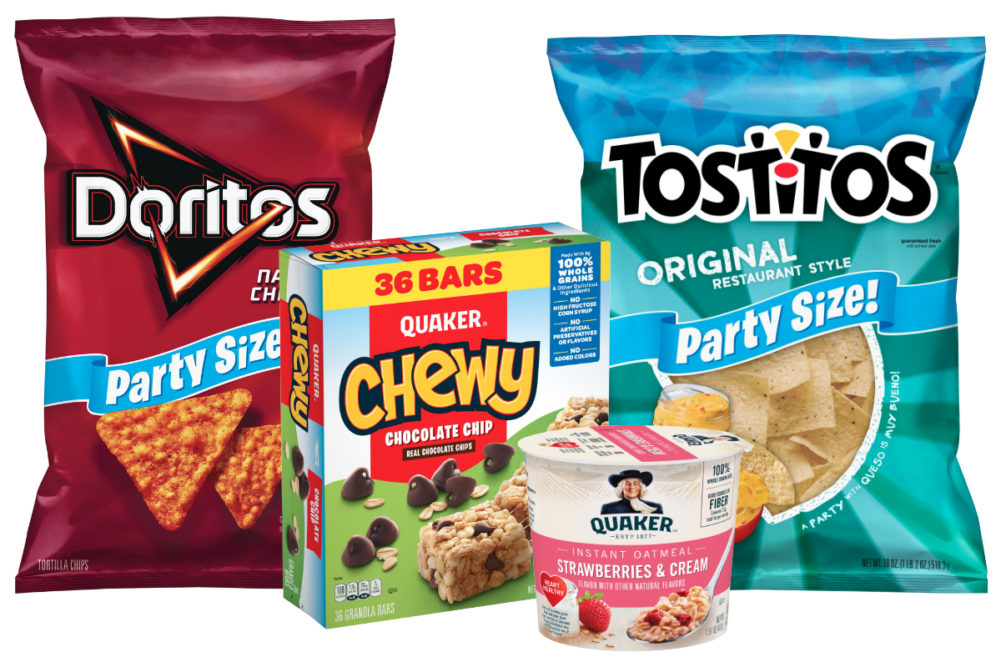PURCHASE, NY. — Consumers are eating breakfast again and snacking more as they stay at home to slow the spread of the coronavirus (COVID-19) illness — trends that are benefiting the Quaker Foods and Frito-Lay businesses at PepsiCo, Inc., said Ramon L. Laguarta, chairman and chief executive officer.
At the same time, the shelter-in-place orders resulting from COVID-19 are eroding the company’s beverage sales as consumers restrict visits to restaurants, gas stations and convenience stores.
While the company posted a strong first quarter, supported by higher levels of marketing and the launch of new products like Mountain Dew Zero and Cheetos popcorn, management anticipates a decline in second-quarter revenue due to weakened demand in away-from-home channels. The company also has withdrawn its full-year guidance.
Net income attributable to PepsiCo for the first quarter ended March 21 totaled $1.34 billion, equal to 96¢ per share on the common stock, down from $1.41 billion, or $1 per share, in the prior-year period.
Net revenue for the quarter rose 7.7% to $13.88 billion from $12.88 billion.
“The quarter began with a strong macroenvironment backdrop in January and February followed by a high level of uncertainty and volatility in March,” Mr. Laguarta said in a pre-recorded message to investors.
Organic net revenue growth of 7.9% was broad-based with a high-single-digit increase in organic revenue across developed and emerging markets, he said.
“It was our fastest-growing quarter in a long time, even if you deduct the last couple of weeks where we had a positive impact from the stockpiling in the US,” Mr. Laguarta said during an April 28 call with securities analysts.
Frito-Lay North America operating profit grew 4% to $1.2 billion, and net revenue increased 7% to $4.07 billion. Quaker Foods North America operating profit grew 8% to $150 million, and net revenue climbed 7% to $634 million.
“With consumers spending more time at home, we’ve seen an increase in eating breakfast and a tendency to snack more during the day,” Mr. Laguarta said. “The Frito and Quaker Foods businesses are well positioned to capitalize on these changes, and as a result, we’ve seen higher household penetration across a variety of our products.”
PepsiCo Beverages North America net operating profit declined 24% to $297 million, as net revenue increased 7% to $4.84 billion.
In Latin America, operating profit rose 1% to $231 million as revenue climbed 6% to $1.3 billion. Europe operating profit increased 28% to $146 million, and net revenue advanced 14% to $1.84 billion.
In Africa, Middle East and South Asia, operating profit grew 26% to $134 million, and revenue increased 9% to $631 million. In Asia Pacific, Australia and New Zealand and China Region, operating profit surged 33% to $142 million on sales of $555 million, up 6% from the year-ago quarter.
“In developed markets we see consumers moving through several emotional and behavioral changes as they adjust their lives to the new realities they face,” Mr. Laguarta said. “We believe there are four stages to this evolution. The first is preparation and prevention. The second is confinement and cocooning. The third is a restricted recovery. And the fourth is a new normal.”
PepsiCo is bracing for how these trends may impact the business in the near term by adjusting its advertising, revenue management and go-to-market priorities. The company expects a continuation in increased purchasing patterns in large-format and e-commerce channels and softness in immediate consumption channels.
“We're looking holistically and very intentionally at unnecessary costs in our P&L at this point, both, obviously, to things that are unnecessary, we're going to stop them, but also to have the flexibility to reallocate into areas of the business where we see acceleration,” Mr. Laguarta said. “For example, we're seeing, obviously, as you're hearing from everybody else, e-commerce being a high-growth channel at this point. So we're reallocating resources from other parts of the P&L into e-commerce and capturing consumers in that particular channel. And then obviously, we'll keep investing to retain those consumers as they probably stay in the e-commerce.
“There are some brands that are benefiting from this more consumption at home like Quaker. Well, I think we want to invest in some of those brands that are getting consumer tailwinds now because we want to retain those consumers with the brands as we exit the crisis situation.”
Shares of PepsiCo trading on Nasdaq closed at $136.32 on April 28, up 1.4% from the previous close of $134.46.






